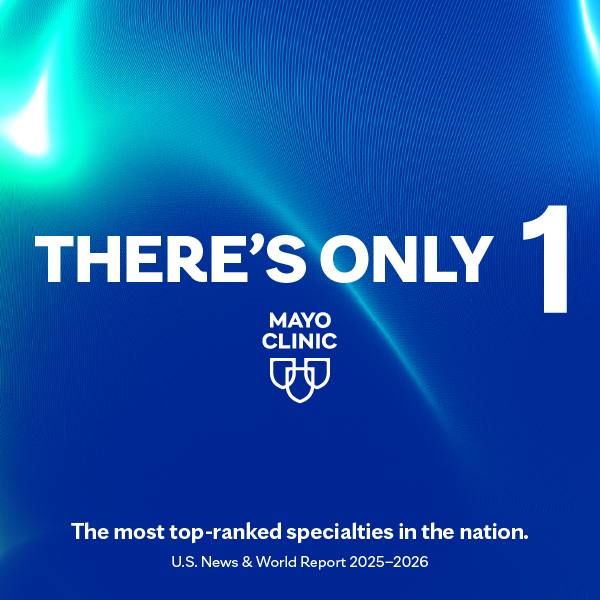-
Key Molecule Suppresses Growth of Cancerous Liver Tumors, Mayo Study Finds
ROCHESTER, Minn. — A molecule already implicated in a number of diverse cellular functions can suppress the growth of tumors in the liver, a Mayo Clinic Cancer Center study has found. Its name is IQGAP1, and when the molecule is active in the cells that surround a tumor cell, this "tumor microenvironment" becomes less hospitable to cancer growth. When the molecule is deficient, cancer thrives.
MULTIMEDIA ALERT: Multimedia resources are available for journalists to download on the Mayo Clinic News Network.
Results of the study appear in the Journal of Clinical Investigation. The findings give new insight into cancer metastasis, the ability of a tumor to spread from its primary site to distant organs such as the brain, lung or liver. The results also point to new targets for preventing or treating liver metastases, the major cause of death from cancer.
"Tumor cells are intelligent — they talk to the cells in their surroundings to change the way they behave and make the environment supportive of cancer growth. If we can disrupt the communication between the tumor cells and the tumor microenvironment, we can prevent tumor growth or metastasis in the liver," says senior study author Ningling Kang, Ph.D., a biochemist and molecular biologist at Mayo Clinic.
For certain solid tumors, about 70 to 90 percent of the tumor mass is made up of microenvironment — a complex mix of noncancerous cells, secreted extracellular matrix proteins, and tumor-promoting signaling molecules. This tumor microenvironment supports tumor growth and drug resistance. Mechanisms regulating the tumor microenvironment are not well understood.
IQGAP1 controls the shape and movement of cells. To study the effects of this molecule on liver metastases, Dr. Kang and her colleagues implanted tumor cells into the livers of mice genetically engineered to lack the molecule.
The implanted tumor cells still had the molecule, but the cells that made up the tumor microenvironment did not. When researchers compared the progression of cancer between mutant and normal mice, they found that mice without the molecule developed more liver metastases. They also followed up these studies in mice by comparing samples of normal and cancerous liver tissues of colorectal cancer patients. They discovered that the levels of IQGAP1 were reduced in the tumor microenvironment of liver metastases than in the normal tissue, suggesting that the tumor somehow communicates with its surroundings to tamp down the activity of this critical molecule.
This communication went both ways. Through a number of basic functional experiments, Dr. Kang and her colleagues showed that IQGAP1 interacts with and suppresses a powerful signaling molecule called TGF-beta receptor that tells normal cells that surround a tumor cell to become tumor-promoting cells.
"We think that tumor cells come into the liver and give orders to the signaling molecules in the surrounding normal cells to reduce the amount of IQGAP1, thereby creating a good tumor microenvironment for themselves," Dr. Kang says." If we can understand exactly how they do this, then we may be able to uncover new therapeutic targets for liver metastasis."
Co-authors of the article are Chunsheng Liu, Daniel D. Billadeau, Ph.D., Haitham Abdelhakim, Edward Leof, Ph.D., Liu Yang, M.B.B.S., Lisa Boardman, M.D., and Vijay H. Shah, M.D., all of Mayo Clinic; Kozo Kaibuchi, M.D., Ph.D., of Nagoya University Graduate School of Medicine in Nagoya, Japan; Carmelo Bernabeu, Ph.D., of Centro de Investigacion Biomedica en Red de Enfermedades Raras in Madrid; and George S. Bloom, Ph.D., of the University of Virginia.
The National Institutes of Health funded the study through grants R01 CA160069, R01 DK059615 and R01 NS051746.
About Mayo Clinic Cancer Center
As a leading institution funded by the National Cancer Institute, Mayo Clinic Cancer Center conducts basic, clinical and population science research, translating discoveries into improved methods for prevention, diagnosis, prognosis and therapy. For information on cancer clinical trials, call 507-538-7623.







